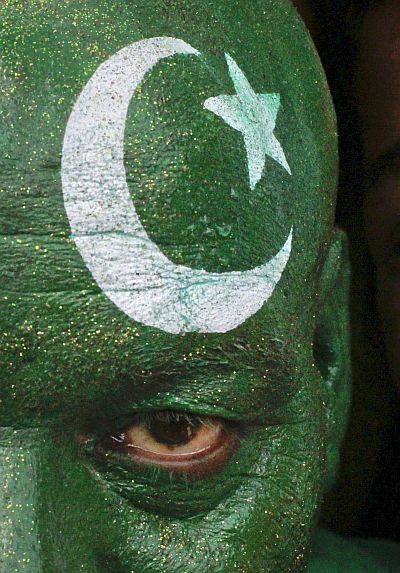 Most of the American military aid to Islamabad for counterinsurgency has gone into buying equipment to fight India, a former US diplomat has told lawmakers as he described Pakistan as a country which is "on the edge in many ways of being a failed state".
Most of the American military aid to Islamabad for counterinsurgency has gone into buying equipment to fight India, a former US diplomat has told lawmakers as he described Pakistan as a country which is "on the edge in many ways of being a failed state".
Testifying before a Congressional Committee, Ronald Neumann, former US Ambassador to Afghanistan, said the State Department on Terrorism ranks Pakistan as having the highest level of terrorist incidents of any country in the world.
"Almost all of those incidents are not related to any aspect of Afghanistan. Many of them take place in areas that have nothing to do with the FATA area," he said.
"It is an economy which basically faces a crisis because of demographic pressures, because this is a country that spends less on education than virtually every country in the world. It is a country which is always on the edge in many ways of being a failed state," Neumann said.
"It's also a country where we don't seem to tie our strategy in Afghanistan. It virtually went unmentioned in the quadrennial defence review. There's no mention of it in the West Point speech. And we're cutting aid very seriously," he said.
"Most of that military aid never went to counterinsurgency; it went to buying equipment to fight India. And as is the case in Afghanistan, on the economic side, in spite of efforts by the Congress over the last 10 years, we have never had a single report from USAID to explain what the benefits or impact of the economic aid to Pakistan has been. And quite frankly it's not quite clear what the (aid) programme did," Neumann said in response to a question from Congressman Joe Wilson.
Michael O'Hanlon, director of research for Brookings Institution's Foreign Policy Program, warned that with the collapse of Afghanistan, a group like Lashkar-e-Tayiba, which was behind the Mumbai terrorist attacks of 2008, could have another place from where it could base its operations.
"At the moment it may not need that because historically of course the Pakistani security forces have tolerated and even helped Lashkar-e-Tayiba. But there hasn't been another attack like Mumbai in the last six years, and there could come a point where LeT wants more freedom of manoeuvre to operate beyond the controls of the Pakistani state," he said.
"So I would worry that an Afghanistan in chaos could provide the sanctuary not only for the groups that might threaten us directly but for groups that might want to start an Indo-Pakistan conflict, and specifically Lashkar-e-Tayiba," O'Hanlon said.
Catherine Dale, specialist in international security at Congressional Research Service said stability in Afghanistan is important from a US national security interest perspective for multiple reasons.
"One is the threat of violent extremism, violent extremists. But in addition, the South Asia region raises other concerns for us. One is the prospect, and a very scary one, of nuclear proliferation in Pakistan, which could be triggered by state instability or collapse," she said.
"A stable Afghanistan could go a long way to lowering the temperatures and the tensions in the Afghan-Pakistani relationship and perhaps bolster state stability in Pakistan, and that's something worth thinking about as we make future decisions," Dale said.
"One more facet is the Pakistani-Indian relationship and the prospect there of a potential nuclear standoff. Afghanistan has traditionally served as grounds for proxy contestation between those two states. Again, a stable Afghanistan could go a long way to lowering those temperatures and reducing that tension," Dale said.






 © 2025
© 2025